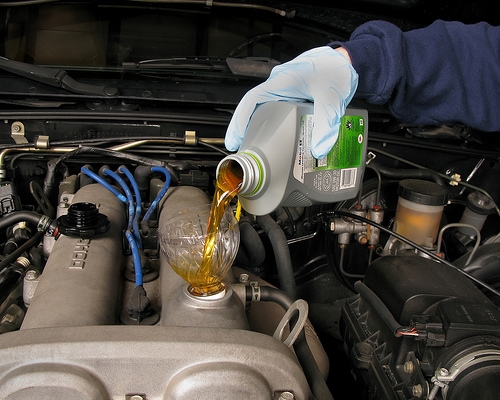
Automotive oil treatments are heavily advertised and promoted as beneficial for your car's engine. In reality, most of these products provide no actual improvement or value for your car, and some may, in fact, harm your car.
When a car begins to run rough, there is sometimes an erroneous assumption that there is a problem with the oil. General wear and tear or bad driving habits are the more likely culprits. Many car owners think that by improving the quality of their oil by using oil treatments, they can somehow fix these problems, or make their car last longer. In actuality, good driving habits and regular maintenance and oil changes are the best way to make your car last longer.
Most popular oil treatments or additives make the oil more viscous, or thicker. What many owners fail to consider is whether their car will benefit from thicker oil. In most cases, the answer is no. Today's cars are built to tighter tolerances than cars were in the first half of the 20th century. Thicker oils may not only be unnecessary, but they may be harmful. Your car owner's manual will have information on the oil your automobile manufacturer recommends for your car; it is best to stick to these recommendations.
Many additives have Teflon in them, and their manufacturers claim that the Teflon will bond to your engine surfaces to prevent wear and tear. This feeble attempt to turn the inside of your engine into some kind of nonstick surface ignores the reality of Teflon: the inside of a car engine never gets close to the temperatures needed to bond Teflon to metal. On the other hand, detergents in oil treatment products do serve a purpose and can assist the engine: that's why they are included in most motor oils already. Adding more to the mix won't help.